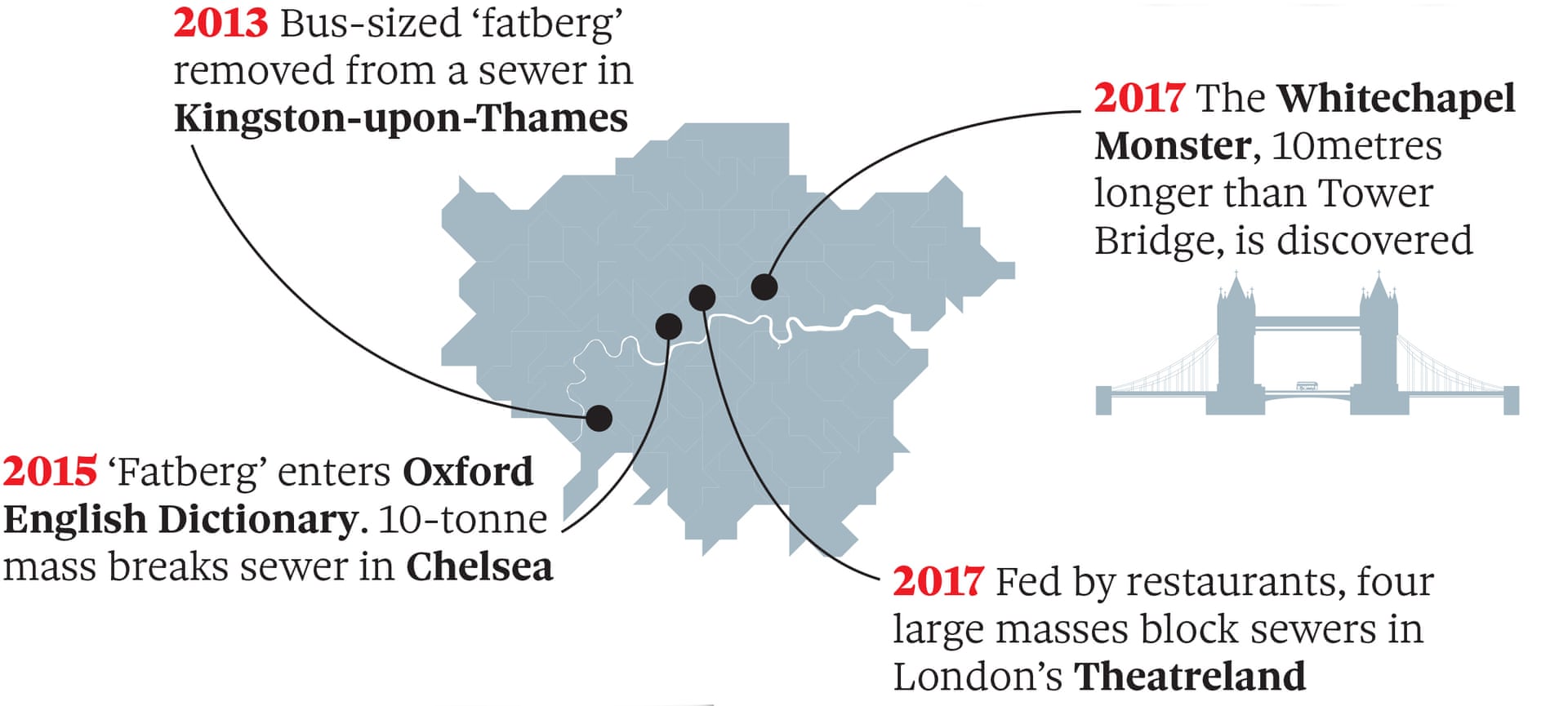The UK restaurant industry had a turnover of over £40 billion in 2017, and while most of the significant growth in the industry came from outside London, London restaurants still grew by 7%, pulling in a whopping £11 billion in turnover.
While this is positive news for the many restauranteurs in the capital, it has spelt trouble for London’s ageing sewer system, with various studies showing that as many as 90% of restaurants in areas of London have inadequate, or no form of grease removal system in place.
Restaurants without a grease trap, or grease removal system installed release large quantities of fat, oil and grease into the drainline, and while a lot of it will remain in their own pipework, causing blockages, floods and sink back ups, a more substantial volume will flow through to the sewer system, where it joins with waste from other local restaurants, retailers and residents.
With many restaurants converging in trendy areas, particularly around the city centre, this can result in a substantial volume of fat, oil & grease being regularly discharged into sections of the sewer system, from a multitude of sites. And once it begins to cool, this fat, oil and grease starts to congeal against the edges of pipework, gradually reducing their diameter and the ability of waste to pass through them.
If this problem persists, the sewer will gradually become clogged, and ultimately blocked, leading to the formation of headline grabbing ‘fatbergs’, the worst of which weigh hundreds of tonnes and can cost millions of pounds and hundreds of man hours to clear.
In a city of 10 million people, while restaurants without grease removal equipment have a significant impact on the sewer systems, they cannot be held solely responsible for these monstrous fatbergs, which have plagued the capital’s sewers in recent years. Equally responsible are home owners, who dispose of sanitary towels, wet wipes and other unflushable goods down the toilet, where they stick to, and are eventually engulfed by the growing fatbergs. And much like an avalanche, which collects snow as it moves down a mountain, these fatbergs feed on fat, oil grease & other detritus in the sewer, until they block the entire line, leading to sewers potentially backing up into local businesses, properties & streets and overflowing into the Thames.
Though fatbergs have been well publicised in recent years, detecting them prior to the point where they start causing serious issues can be incredibly difficult. With thousands of kilometres of sewers under Thames Water’s jurisdiction, it simply isn’t practical or cost-effective at present to pro-actively hunt down these monstrosities, before they start to wreak havoc. While some water authorities have had some success with quirky techniques, such as hiring a sniffer dog to sniff out fatbergs as they form, by far the most cost-effective way for water authorities to deal with the issue is through public awareness & education campaigns, and by promoting legislation to address the causes of fatbergs, and to root out & educate, or in extreme circumstances, punish the largest contributors to the problem.
In terms of bringing fatbergs into the public consciousness, fatbergs such as the 2017 Whitechapel fatberg, who’s anniversary was celebrated earlier this week and part of which remains on display in the Museum of London have done a good job of raising awareness of the problem, but more still needs to be done to end this scourge once and for all.
In the spirit of combating the causes of fatbergs, Thames Water have partnered with local grease trap & drainage companies, including RGR to work with potential problem sites and ensure they have sufficient grease removal equipment in place to stop them from contributing to the problem.
By installing a grease trap or grease interceptor, restaurants are able to eliminate virtually 100% of fat, oil and grease from going to drain, and provided they are properly maintained, are actually a money saving commitment to invest in, due to savings on costly drainage work and the removal of the risk of fines & site closures when problems inevitably arise.
If your commercial kitchen is in need of a grease trap, get in contact with RGR today, either by giving us a call on 020 7221 6094, or by emailing info@rgrfacilities.co.uk and we can carry out a cost and commitment free site survey to determine a bespoke grease removal regime for your site.
For further facts, news & updates about grease traps, grease removal units & all things grease related, be sure to follow RGR on social media, either on facebook, linkedin or twitter, where we provide daily tips & updates about our goings on. We look forward to hearing from you.
Twitter: https://twitter.com/RGR_Facilities
Facebook: https://www.facebook.com/RGR-Facilities-Ltd-209575699167308/
LinkedIn: https://www.linkedin.com/company/rgr-facilities-ltd



